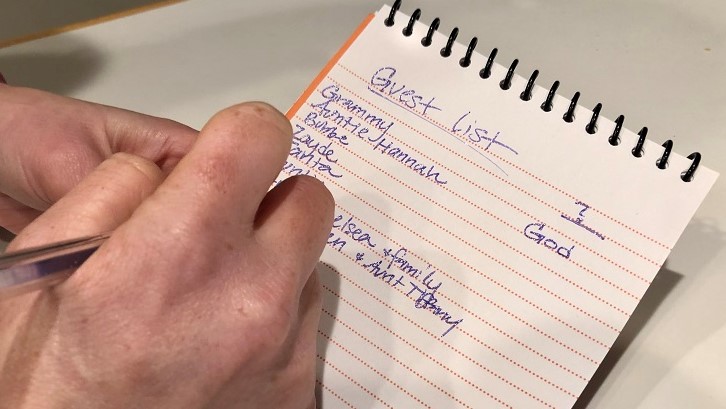If you could invite God to your Passover seder, what would the invitation look like? If you were expecting God at Shabbat dinner, how would you set the table? If God attended your child’s mitzvah celebration, would you expect a gift?

In our earliest experiences with Judaism, we’re taught that we don’t need to “invite” God because “God is everywhere and God is one.” God isn’t like Elijah, with his saved cup of wine and ceremonial door opening. God is always present.
This idea that God doesn’t need an invitation somewhat contradicts this week’s Torah portion, in which Moses receives a very clear and detailed instruction manual for building the Mishkan, an earthly shelter of sorts for God. In our parshah this week, Terumah, God asks the Israelite nation to build a sanctuary so that God may dwell among us. As a side note, how interesting to read about God wanting to dwell among us at a time when we can’t even dwell together. But this Torah portion isn’t only about a sanctuary building; we are to build holiness among us so that God will be present in those human connections.
Some time ago, I asked our Foundation School preschoolers what it means to build a holy, safe space, and their answers included lifting each other up, problem solving, kindness, sharing, and having fun. But more importantly, all the answers came in first person plural. “We lift each other.” “We solve problems.” “We are kind.” They answered my question with the word “we” because to the youngest in our community, sanctuary and holiness are created when we include one another in our lives.
Parshat Terumah teaches us that God dwells among us not because of an ancient Tabernacle or a modern synagogue building, but because of the moments when our actions reflect holiness. Yes, God is everywhere, but the invitation still matters. When we treat each other with dignity, love, and respect for all of our beautiful gifts, we create a world where God dwells among us every single day.



